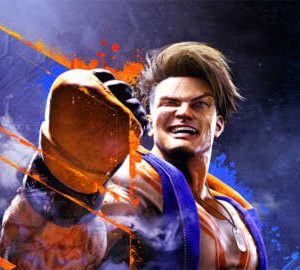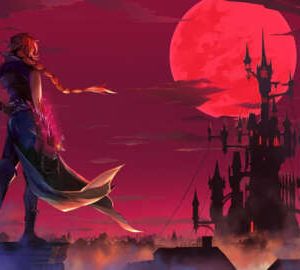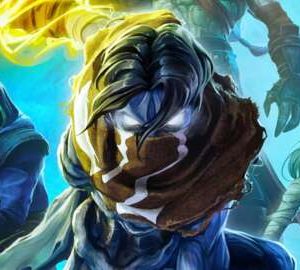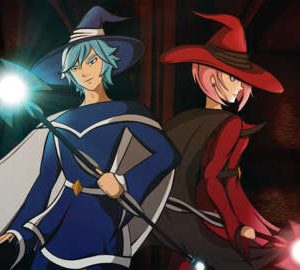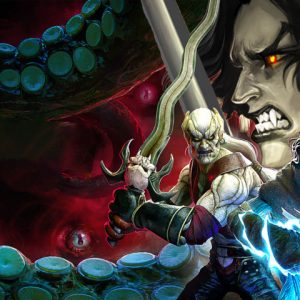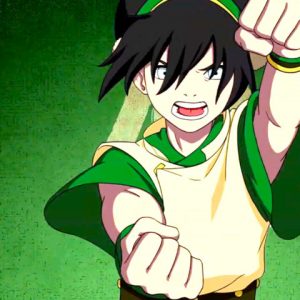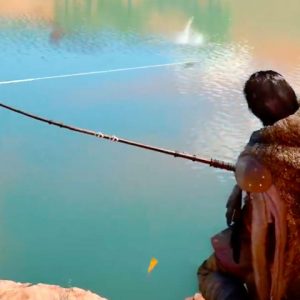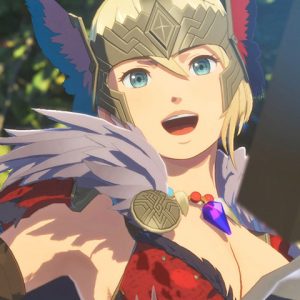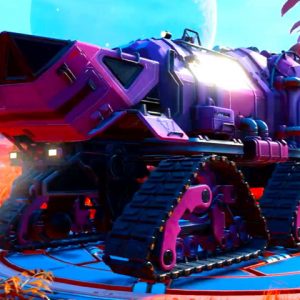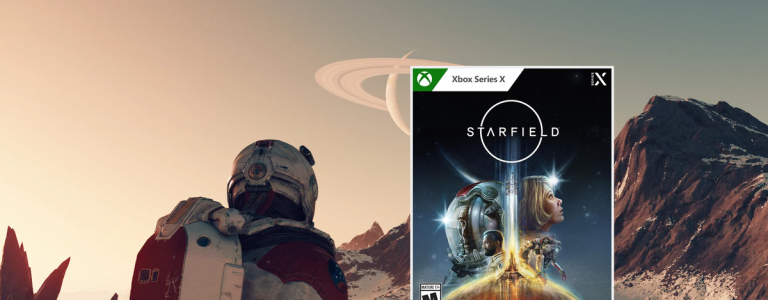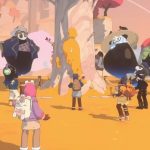The closure of Telltale Games was one of the most shocking stories of the games industry in 2018. But in the time after the studio’s shuttering, publisher Skybound Games worked with key members of Telltale Games to finish The Final Season for The Walking Dead. Following the completion of the series, which will be the final game for all existing developers at Telltale Games, the studio’s creative director Kent Mudle and Skybound Games CEO Ian Howe spoke with GameSpot about finishing the long-running and popular series under such unusual circumstances. During our interview, they spoke candidly about the closure of the studio, revealing what the immediate plans were at the time of the closure, what the developers had planned after The Walking Dead, and what they believe the lasting impact Telltale will have on gaming.
Editor’s Note: This interview has been edited for clarity and readability.

Telltale’s final chapter is a unique one in game development. Can you take us back to the moment when this news broke, and how you were able to find a solution to finish The Final Season?
Kent Mudle: WelI, I guess the start of this experience would be the middle of production of what would have been the final season of The Walking Dead. At that point, Telltale Games shut down. For a moment it seemed like all hope was lost and we would never really get to finish this thing. At the time Ian and I had really believed in it and worked on it very hard, and a lot of us really thought it was gonna be one of the best things we’ve ever made. It was heartbreaking, both to not finish that and also for a lot of people who came to work and found out that it was all over.
But luckily, we learned pretty quickly that Skybound was interested in trying to resurrect the thing, so we were given some hope. That sustained us for a certain period. But then when we finally got back up, it was almost like no time had passed, and we were actually able to just get right back to making the piece of art that we all wanted to make, and I think the experience has been miraculous.
Ian Howe: The guys couldn’t work for two months as we were clearing all the legal side of things, but we were able to stick with almost the exact schedule less those two months, which was pretty incredible. That’s a testament to the team and the effort they put in to get it over the line because that’s hard to do. Just picking up something that’s had this eight-week gap in the middle.
The day the news broke, we were really shocked. It was like “sorry, what?” We sat around a phone talking to Telltale co-founder Dan Conners and CEO Pete Hawley, and there was me and David Alpert, and a few of the other senior people at Skybound. Robert Kirkman [the creator of The Walking Dead] was laying on the couch behind us, just kind of listening, and at the end of the call, we were just diving into the weeds and Robert said, “let’s just go get the story finished.” That was very refreshing to just have a guide from Robert, as to say just go and make this happen. And then we, I think we flew up the next day.
Mudle: It was crazy how quickly it happened. The day we were fired, they were supposed to come back and they said pack up our stuff and Brody and Paul called me into a room and they were working on the spreadsheet and I guess they may have already been in touch with [Skybound] at that point. Yeah, like almost right away, you guys came up and we had that big meeting in the boardroom with everybody trying to figure out how viable this would all be.
Howe: The desire was to finish it, and there was definitely that dedication to try and save some jobs. These guys had been let go without any severance and have been through a tough situation–can we figure something out? Thankfully we were able to put together something pretty quickly, and I will give huge credit to the management of Telltale who went out of their way and did everything they could to make this deal happen as quickly as it could. For exactly that reason to help those people out, so that I don’t think that should get lost in this.

There was a massive outpouring from fans regarding the fate of Telltale. It must have been very overwhelming to see such a response from fans, especially after the January reveal of the final two episodes.
Mudle: I think the outpouring of love and excitement that happened as soon as it was confirmed that Skybound was definitely going to continue was tremendous. Like it’s almost like- people had been into the season, it was just a roller coaster of emotions. It just hit people like super hard. I just remember it being everywhere, every social media feed I had ever looked at, it was just like blasted with support.
Howe: Yeah, it was overwhelming in a good way, but also that there was a definite realization of expectation that, and at the time it happened, Skybound Games was in its infancy and it still is, honestly. It’s still in its infancy and I don’t know what [Kent’s] expectations were, but you didn’t probably realize there was so few of us.
Mudle: I didn’t, when we first started talking to you guys, it sounded like you guys were like five people or something when you started being like, ‘we’ll save it.’ Yeah, I assumed that Skybound was a bigger company.
Howe: Yeah, the games division of Skybound was five people. We were less than a year old and we were still definitely in training wheels. I mean I’ve been doing this for a long time so I realized that a lot of the work related to the publishing side had been done. Telltale was literally the lowest maintenance team I’ve ever worked with, they literally just came back in and got on with the job. That to me speaks volumes about the character of the people there, but also the desire to get it finished. Our part compared to what these guys were doing was very small, but it was really all about the focus of getting these guys back in a room somewhere with the ability to finish the story.
Around the time of the closure, reports came out that the last two episodes of the season were already written and ready for production. Did the experience of the last few months have any influence on the final episodes?
Mudle: Well at the time of Telltale’s closing down, Episode 3 had just hit sort of the middle point of development, which was funnily referred to as the ratings milestone–meaning all the voicework had been recorded and all the visuals were in sort of a rough state. So Episode 3 really just kind of had to get finished and just get a normal series of edits along with some nips and tucks anyway. Episode 4 had already had its first round of voicework recorded. So the first draft of the episode was written and recorded and like very base level like visual stuff had been done.
Thankfully before Telltale shut down, we already had talked, you know we work with Skybound editorial to get feedback from them and we already were aligned on what the plan was going to be to finish the thing. Though we did some revisions and some minor adjustments, it was exactly as it would have been had Telltale not exploded, really. And it was a testament to Skybound for letting us do our own vision without trying to like meddle with it in any way except for giving us feedback. But it was exactly what we envisioned and we’d all agree with Skybound to do even before Telltale shut down.

It seems fitting in a way that Telltale’s history closed out on The Walking Dead. This series, in particular, helped propel the studio to new heights, and in a lot of ways, it seems like it’s a bit of an epitaph summing up Telltale was all about.
Mudle: Weirdly, I think it would have done that anyway regardless of the studio closing. It was always going to be the last Walking Dead game, and we all knew at that point. After that, we were actually planning to move Telltale as a studio into new kinds of games, with new graphics engines, and just kind of go bolder. So this was always intended to be the last hurrah for the classic style of a Telltale game. Like the choices, the waiting, and all that stuff. So it was always trying to be like the very best one of those. We know that it’s such a long-running series that we wanted to do a bunch homages to the past and that kind of stuff.
We even wanted to do some stuff in the last quarter of the episode that was supposed to be like, this is what a new Telltale game could be like with like those mechanical twists and that kind of thing. So it was always kind of intended to be a tribute to Telltale’s legacy. And it’s weird that it’s ended up being that in, you know, in its finality because it was the last one ever.
Telltale had some strong parallels with Lucasarts of the ’90s, with games like Full Throttle and Grim Fandango. A lot of fans saw the studio very much in that school of thought, offering these in-depth adventures with some compelling characters.
Mudle: That does mean a lot that fans saw that in us. I’m a storyteller at heart and if I can get the audience to care about something you care about, these fictional people that we made up so, so passionately that they feel real feelings, I think that’s a huge accomplishment. I think the legacy of Telltale has had left has on the games industry has been kind of broad and wide as a whole. I think it’s still a really rich space to explore, and I’d like to think Telltale helped kickstart all that again. So I think that legacy will stick around forever, and it’ll always be an honor to have been a small part of that.
I can only imagine how bittersweet experience this must be for you all. Though it’s sad to see Telltale come to an end, you do leave a sizable legacy of games behind.
Howe: Well, I’ve been doing publishing for 28 years and this is the project I’m probably most proud to be associated with. The motivation to bring it back and to rescue it gives me a great deal of personal satisfaction that we were able to do that. The fact that this community has really actually come together. I’m very grateful to have been a part of this.
Mudle: Yeah, absolutely. Episode 4 makes me extremely emotional, honestly. Like a lot of it is tough near the end, in that it’s kind of a loving tribute to the people that worked on the game. I still can’t even look at it without getting a little misty-eyed. I’m just so proud of the work everybody did. We all came together to make this beautiful thing and to leave that stretching back into all the years that I worked with all of those people. It’s the end of an era, and it’s sad, but I’m glad we got to at least finish it in style.





